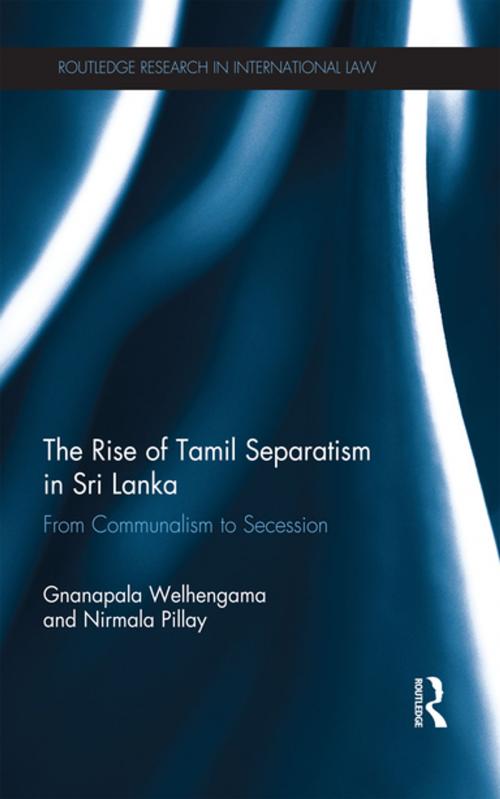The Rise of Tamil Separatism in Sri Lanka
From Communalism to Secession
Nonfiction, Reference & Language, Law, Comparative, International| Author: | Gnanapala Welhengama, Nirmala Pillay | ISBN: | 9781135119782 |
| Publisher: | Taylor and Francis | Publication: | March 5, 2014 |
| Imprint: | Routledge | Language: | English |
| Author: | Gnanapala Welhengama, Nirmala Pillay |
| ISBN: | 9781135119782 |
| Publisher: | Taylor and Francis |
| Publication: | March 5, 2014 |
| Imprint: | Routledge |
| Language: | English |
Among the examples of civil wars, armed secessionist movements and minority uprisings in the world today, many involve conflict between a minority group’s aim for political self-determination, and the nation state’s resistance to any diminution of sovereignty. With the expansion of the international regime of human rights, minority groups have reconceptualised their struggle with the understanding that a minority which is linguistically, religiously or ethnically distinctive is entitled to self-determination if their aspirations cannot be met.
This book explores the relationship between minority rights, self-determination and secession within international law, by contextualising these issues in a detailed case study of the rise of Tamil separatism in Sri Lanka. Welhengama and Pillay show how Tamil communalism hardened into secession and assess whether the Sri Lankan government has met its obligations with respect to the right to self-determination short of secession. Focusing on the legal and human rights arguments for secession by the Tamil community of the North and East of Sri Lanka, the book demonstrates how the language of international law and international human rights played a major role in the development of the arguments for secession. Through a close examination of the case of the Tamil’s secessionist movement the book presents valuable insights into why modern nation states find themselves threatened by separatist claims and bids for independence based on ethnicity.
Among the examples of civil wars, armed secessionist movements and minority uprisings in the world today, many involve conflict between a minority group’s aim for political self-determination, and the nation state’s resistance to any diminution of sovereignty. With the expansion of the international regime of human rights, minority groups have reconceptualised their struggle with the understanding that a minority which is linguistically, religiously or ethnically distinctive is entitled to self-determination if their aspirations cannot be met.
This book explores the relationship between minority rights, self-determination and secession within international law, by contextualising these issues in a detailed case study of the rise of Tamil separatism in Sri Lanka. Welhengama and Pillay show how Tamil communalism hardened into secession and assess whether the Sri Lankan government has met its obligations with respect to the right to self-determination short of secession. Focusing on the legal and human rights arguments for secession by the Tamil community of the North and East of Sri Lanka, the book demonstrates how the language of international law and international human rights played a major role in the development of the arguments for secession. Through a close examination of the case of the Tamil’s secessionist movement the book presents valuable insights into why modern nation states find themselves threatened by separatist claims and bids for independence based on ethnicity.















